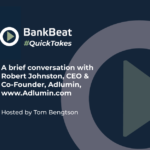Let’s stop being so doggedly predictable
I have a friend named Steve with whom I share a monthly dinner out with our respective spouses. Steve is a predictable sort with simple tastes. He likes pizza, chow mein, or a well-done(!) steak, but will set aside any of these options whenever he spies fish-and-chips on a menu. If I gently tease that he’s missing an opportunity to try something new by always ordering the same food, he shrugs his shoulders and says: “I know what I like.” I would like to tell Steve he has it backward. He doesn’t “know what he likes.” He “likes what he knows,” choosing it again and again and again. [Continue]









